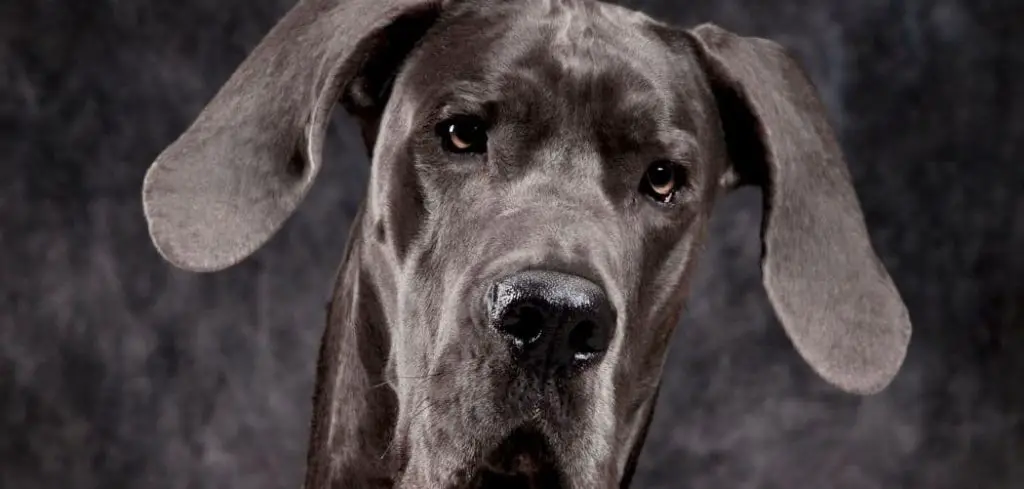Panting is normal for dogs, but when an old dog is panting a lot, it can be worrying. Excessive panting in senior dogs may point to an underlying health issue or discomfort that requires attention.
We outline the common causes of an old dog panting a lot, what you can do at home, and when to seek veterinary help.
Old Dog Panting a Lot — Why It Happens
An old dog panting a lot can be due to many reasons, ranging from normal aging changes to serious health conditions. Heatstroke, heart disease, respiratory problems, pain, anxiety, and organ disease are all common causes.
While panting can be a way for dogs to cool down or release stress, persistent or heavy panting in an older dog should never be ignored. It’s often a signal that your senior pup’s body is struggling in some way and needs support.

Old Dog Panting a Lot: Common Causes
Heatstroke
Heatstroke is one of the most immediate and dangerous causes of excessive panting in older dogs.
Senior dogs cannot regulate their body temperature as efficiently as when they were young. Panting is their main way of cooling down, but in extreme heat, it may not be enough.
You may notice rapid panting, drooling, weakness, and even collapse. Heatstroke is life-threatening and requires urgent care, especially in older dogs who are more vulnerable to overheating.
Read more: Old Dog Not Eating (Causes and next steps)
Heart Disease
Heart disease is a frequent issue in aging dogs, and heavy panting is a red flag.
When the heart cannot pump blood effectively, fluid may build up in the lungs, making it difficult for your dog to breathe. Panting, coughing, lethargy, and reluctance to exercise often appear together.
This condition is serious because it puts constant stress on the body and can quickly progress without treatment.
Respiratory Problems
Lung disease, tracheal collapse, or chronic bronchitis can all cause an old dog to pant a lot.
When the airways are obstructed or inflamed, your dog works harder to breathe, leading to frequent panting and noisy breathing.
Owners may also notice wheezing, gagging, or blue-tinged gums. Breathing problems in senior dogs should never be brushed off as “just old age.”
Pain and Arthritis
Chronic pain, especially from arthritis, is a hidden but common cause of panting in old dogs.
Panting is a dog’s way of coping with discomfort. If your dog pants heavily after movement, struggles to get up, or seems restless at night, pain could be the reason.
Because dogs instinctively hide pain, panting may be one of the first visible signs. Untreated pain reduces quality of life and can make daily activities stressful for your senior pet.
Anxiety and Stress
Just like people, dogs can experience anxiety as they age, and panting is a classic symptom.
Older dogs may develop separation anxiety, noise sensitivity, or confusion linked to canine cognitive dysfunction (doggy dementia).
You might notice pacing, whining, or clinginess alongside panting. While not always dangerous, anxiety-driven panting can still harm your dog’s comfort and well-being.
Kidney or Liver Disease
Organ disease is another reason an old dog may pant excessively.
Kidney failure often causes nausea, weakness, and changes in breathing. Liver disease can lead to toxin buildup in the blood, which affects the nervous system and causes panting, confusion, or even seizures.
Because these conditions progress quietly, panting may be one of the first signs an owner notices before other symptoms appear.
What to Do If Your Dog Is Panting a Lot
If your old dog is panting heavily, first check the environment. Make sure the room is cool, well-ventilated, and your dog has fresh water available.
Help your senior dog rest comfortably by offering a calm, quiet space away from stressors. Avoid strenuous activity during the hottest parts of the day, and never leave your dog in a car, even briefly.
If pain seems to be the cause, consult your vet about safe pain relief options. Do not give human medication, as many are toxic to dogs. Instead, gentle massage, orthopedic bedding, or joint supplements (with veterinary guidance) may help reduce discomfort.
For anxious panting, try to reassure your dog with a consistent routine. Background noise like soft music or leaving a worn shirt nearby can help soothe separation anxiety. If anxiety worsens, your vet may suggest medications or calming therapies.
When to Call or Visit Your Vet
If panting comes on suddenly and is severe, seek veterinary care immediately.
Panting accompanied by coughing, collapse, blue gums, or difficulty standing is an emergency. These may signal heart failure, heatstroke, or severe respiratory distress.
You should also call your vet if your old dog’s panting is persistent, worsening over time, or paired with weight loss, vomiting, or lethargy. These could be signs of organ disease or another serious condition that requires prompt testing.
Even if your dog seems stable, a sudden change in breathing patterns in a senior dog is always worth checking out. Early intervention can prevent complications and give your dog the best chance at recovery.
Read more: Old Dog Breathing Heavy and Not Eating (Here’s why)
Key Takeaway
An old dog panting a lot is not something to dismiss. While panting can be normal, persistent or heavy panting in senior dogs is often a sign of heatstroke, heart disease, respiratory problems, pain, anxiety, or organ issues.
As a pet parent, you can make small changes at home to keep your dog comfortable, but veterinary input is crucial when panting becomes frequent or severe.
Trust your instincts. If your senior pup’s breathing feels “off,” don’t wait—schedule a vet visit. With the right care, you can help your old dog feel more comfortable and enjoy their golden years with better quality of life.
